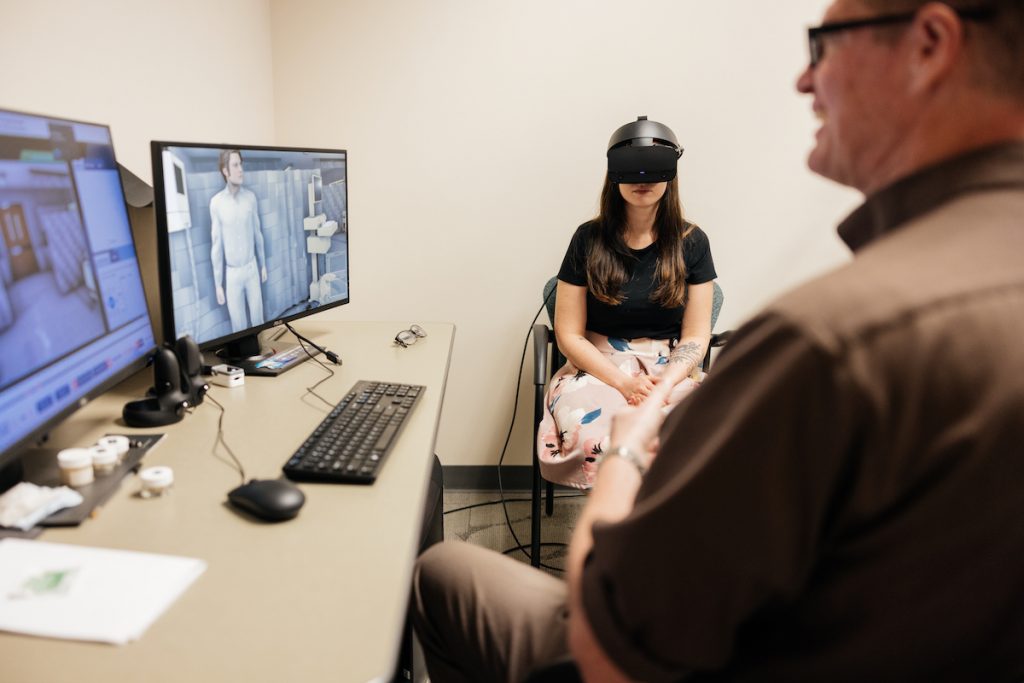Assistant Professor of Nursing Brian Peach is leading the study, which uses exposure therapy featuring virtual reality with real sounds and smells, all mimicking the patients’ intensive care experience.

Exceptional medical care from first responders, nurses and doctors routinely saves the lives of patients with critical illnesses. But many of those patients will suffer from anxiety, depression and PTSD after they return home.
A team of UCF researchers is confident that exposure therapy featuring virtual reality with real sounds and smells, all mimicking the patients’ intensive care experience, will help those patients — just as it has for veterans, first responders and others treated by UCF RESTORES, a nationally recognized PTSD clinic on campus.
Assistant Professor Brian Peach — an ICU nurse for 17 years — is leading the study of patients who endure post-intensive care syndrome, known as PICS. Studies show PICS can affect as many as 80% of patients who are in intensive care. About one-third of intensive care patients are unable to return to work in the first year.
While there are other studies examining the impacts of PICS, Peach says what makes his study unique is the exposure therapy — which has proven to be highly successful with first responders, military personnel and veterans treated at UCF RESTORES. They overcome PTSD at much higher rates than the national standard.
Read More on UCF TodayHas the UCF College of Nursing Positively Impacted You?
The mission of the College of Nursing at the University of Central Florida is to prepare nurse leaders and patient advocates through excellence in education, research and service.
Find out how to give back to your college, today!